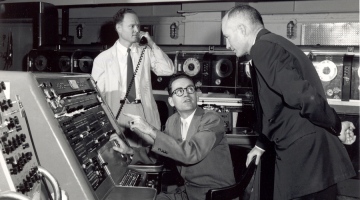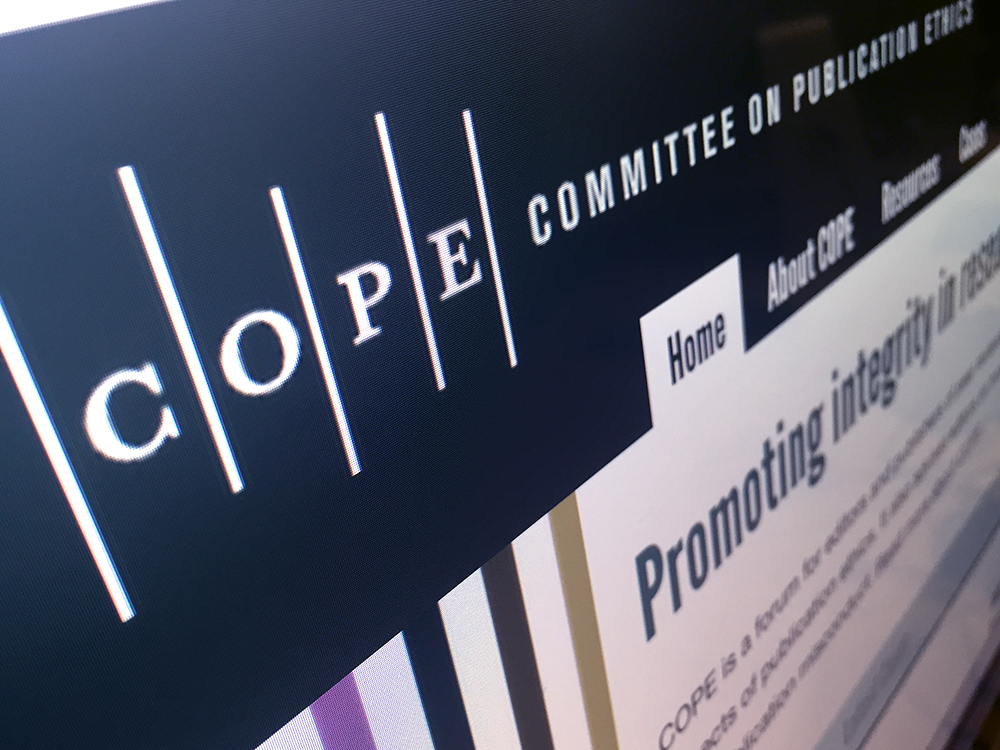Menage a quoi? Optimal number of peer reviewers
Five reviewers per application represents a practical optimum which avoids large random effects evident when fewer reviewers are used.
Send us a link
Five reviewers per application represents a practical optimum which avoids large random effects evident when fewer reviewers are used.
"Classical peer review" has been subject to intense criticism for slowing down the publication process, bias against specific categories of paper and author, unreliability, inability to detect errors and fraud, unethical practices, and the lack of recognition for unpaid reviewers. This paper surveys innovative forms of peer review that attempt to address these issues.
"Retrospective analyses of the correlation between percentile scores from peer review and bibliometric indices of the publications resulting from funded grant applications are not valid tests of the predictive validity of peer review at the NIH."
A process at the heart of science is based on faith rather than evidence, says Richard Smith, former editor of the BMJ and chief executive of the BMJ Publishing Group from 1991 to 2004.
Movement to publicly record peer-reviewing activity gains momentum.

eLife has partnered with Publons to help reviewers receive recognition for their work.
This editorial describes the problems with the process of preparing and publishing research findings, and with judging their veracity and significance, and then explains how we at Faculty of 1000 are starting to tackle the ‘deadly sins’ of science publishing.
How do reviewer recommendations influence editor decisions? And are Chinese authors treated fairly?
Nature Biotechnology asks peer reviewers to check accessibility of code used in computational studies.

A survey of 307 reviewers of submissions to the International Conference on Human Factors in Computing Systems to gain a better understanding of their motivations for reviewing.
The case of the human-computer interaction community.
An editor of Nature Publishing Group has resigned in a very public protest the recent decision to allow authors to pay money to expedite peer review of their submitted papers.
Biomedical researchers look to post-publication peer review to build grant funding case.
What if every creative endeavor had to go through Peer Review?
"Peer review is mortally sick" according to Vitek Tracz.

Behind the headlines are exciting initiatives that have the potential to, not just improve peer review, but optimize it for 21st century scholarship.
BioMed Central is retracting 43 papers possibly involving third-party companies selling the service.

When people talk about the flaws in the scientific process, they often raise the problem of peer review. Right now, when a researcher submits an article for publication in a journal, it's sent off to his or her peers for constructive criticism or even rejection.

The professionally trained scientists who make decisions on biology papers at the big journals with the big journal impact factors have significantly less scientific experience and far weaker publication records than the editors of lower journal impact factor biology journals.
Wiley is piloting a partnership with Publons to give you official recognition for your peer review work. This partnership means you can opt-in to have your reviews for participating Wiley journals automatically added to your reviewer profile on Publons.
Nature is offering anonymity for both reviewer and reviewed, but questions remain about value and effectiveness of the approach.
A simulation of grant submission and peer review shows that small biases in evaluation can have big consequences.
d[3]ouble-blind review [niWsUluYRUOIzRCEqHYY_nature-header.ed_400x400.png]

Quality control in science journals is evolving, with a code of ethics in hot pursuit.

We need to assess who gets funded based on research merit, not journal label.
Researchers on social media discuss the potential impact of making peer review more transparent.

A few professional scientists have found a sneaky way to cheat their way up the career ladder. They evaluate their own research by pretending to be someone else.

Evaluative strategies that increase the mean quality of published science may also increase the risk of rejecting unconventional or outstanding work.
Opinion article by the founders of PubPeer.com on right to anonymity.
When a handful of authors were caught reviewing their own papers, it exposed weaknesses in modern publishing systems. Editors are trying to plug the holes.
